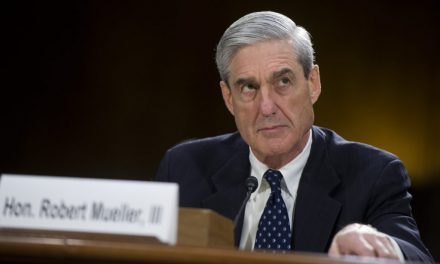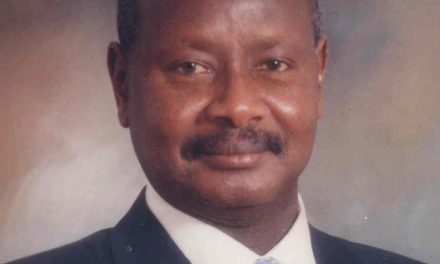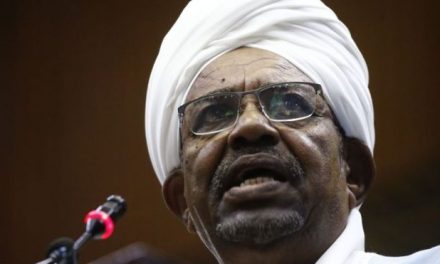Bo Xilai
Bo Xilai was the Communist Party chief of metropolitan Chongqing. Chongqing is one of the four directly controlled municipalities in China. The other three are Beijing, Shanghai and Tianjin. The name Chongqing comes from the Jialing River that runs through the city into the nearby Yangtze River. The municipality had a population of 28 million as of 2010, although only six or seven million lived in the urban area.
The Communist Party leaders sacked Bo Xilai from his powerful position on 15 March 2012. The following day the Communist Party Central Committee circulated its findings on its investigations of Bo Xilai to high ranking officials of the party and the government. The contents of the report have not yet been made public. Because of it there is a widespread speculation as to the cause of the downfall of Bo.
One version of the report suggests that Bo schemed to purge his trusted aide, Wang Lijun, in order to impede him from his investigating Bo’s family involvement in corruption. But the question is why Wang would take up such an investigation without the knowledge his boss.
Another version of the report shows that this is an effort at damage control and to manage one of its biggest political earthquakes in years. Some officials are worried that purging of Bo could upset the plans for a peaceful transition of power later this year. Ensuring a smooth transition has become a top priority for the part. The party’s effort to build up a case against him suggests a campaign to discredit him. Bo was one of the 25 members of the ruling Communist Party’s Politburo and he made no doubt about his ambition to have a place in the top table of power in China – Politburo Standing Committee.
Bo is immensely popular in Chongqing because of his crackdown on private entrepreneurs and public officials accused of organized crime in 2008. He is given credit for redistribution of wealth and a big drive to urbanise and house rural migrants in Chongqing. He romanticised Mao and gave preference to state enterprise. Bo’s work in Chongqing has become a model for the country and came to be known as ‘Chongqing model’.
Besides, his father was one of the revolutionary leaders. Therefore he cannot be dismissed so easily without some serious charges against him. If they charge him with corruption, that will make him a hero and people will ask why single him out when corruption is perceived to be widespread.
Vice President Xi Jinping, heir apparent to the new leadership wrote an article in a communist party journal calling for more discipline in the party’s ranks and criticized those attempting to use populist measures to gain fame or wealth. This article is interpreted as a criticism of Bo’s style of rule.
Premier Wen Jiabao also remarked that if the rift in the Chinese ranks widened, it would end up in another “historical tragedy” like the Cultural Revolution. In what appears to be the strongest public call to date for change, Wen stressed the importance of political reform.
Like Mr. Wen’s remarks at a news conference last week warning against radical policies that could trigger another Cultural Revolution, Mr. Xi’s article was largely interpreted as a swipe at Mr Bo’s flamboyant rule.
Liberalising of private entrepreneurship has created a new class of wealthy people. This has caused the gap between the rich and poor to widen. There is much discontent because of this in the egalitarian state where people have seen everyone to be equal. In order to combat this, the government promoted the ‘red culture’ drive which is a revival of Mao’s concept of government. Government spent lavishly on sprucing up ‘red tourism’ sites such as Chairman Mao’s hometown of Shaoshan. This effort produced some results in creating over 2 million jobs and has generated a “Red” industry in Chairman Mao busts, revolutionary clothes and other memorabilia, as well as “revolutionary food” such as red-braised pork, a favourite of Mao. Chinese National Tourism Administration said that the number of visitors at the country’s top ten “Red Tourism” sites is growing by more than 50 per cent a year.
In Chongqing, Bo Xilai, went a little overboard and ordered state radio and television to promote 36 “Red songs” praising the Communist party. Chongqing television was stopped from showing sitcoms and soap operas during prime time and air instead revolutionary dramas and musical shows. Bo also went on to revive the study of Maoism. Bo’s populist rhetoric and the success of his ‘Chongqing model’ made him the champion of Chinese new left which consisted of Maoist and social democrats disillusioned with the country’s market economic reforms and increasing wealth gap. Bo should have known better with his life in prison, his mother being shot dead and his father’s purging. But his ambition for power blinded him.
Xu Chao, the official leading the Red song drive, told the Global Times, a state-run newspaper that “some appear to have misunderstood the message in the campaign”. Bo’s style of government pitted him against outgoing President Hu Jintao.
Xi Jinping, Wen Jiabao and other top leaders felt that if Bo’s style is allowed to continue there was the danger of coming back of tragic Cultural Revolution and could derail the economic reform achieved in the past three decades. So, it became clear to them that Bo will have to be discredited and disposed of.
Deng Xiaoping, then Paramount Leader of the People’s Republic of China, proposed the idea of ‘one country, two systems’ to mean that while China adopted socialist system, the independent Chinese regions such as Hong Kong, Macau and Taiwan, could have their own capitalist economic and political systems. Deng is also the father of the economic reform in China. He had in mind to have socialism and capitalism to co-exist hand in hand in China – an extension of his thought on ‘one country, two systems’. He endorsed and supervised the transition from state enterprise to private enterprise. He is often quoted for his sayings such as ‘Poverty is not socialism. To be rich is glorious.’ and ‘Let some people get rich first.” etc. Major economic reforms had already taken place during his lifetime. These show clearly what was in his mind. President Hu and premier Wen are following his path. In practice capitalism has taken a stronger hold than communism. This resulted in the widening gap between the rich and poor as mentioned earlier, which in turn led to the rise of leftists like Bo.

Bo Guagua with two young friends
It was Wang Lijun’s attempt to seek asylum in US Consulate that set in motion the downfall of Bo. The lavish lifestyle of Bo’s 24-year-old Harrow and Oxford-educated son Bo Guagua also could have contributed to his downfall due to resentment in China. Pictures of Guagua drinking and courting women have been widely publicised on website much to the irritation of the political leaders in China. Bo Xilai denied the rumour that his son was running about in a Ferrari. Bo claimed that he had no assets of his own and his son’s education in England starting at the age of 12 at Papplewick preparatory school in Ascot, Berkshire was funded fully by scholarship.
China’s leftists are not happy with the ouster of Bo. Their websites such as Utopia, Redchina and Maoflag were inaccessible for several days. Micro blog sites which bemoaned Bo’s ouster remained blocked.
Bo Yibo – Bo Xilai’s father
Bo was born on 4 July 1949. His father, Bo Yibo, one of the Eight Elders of the Communist Party of China and was Vice Chairman of the Central Advisory Committee of the communist party. He also served as minister of finance in the early years of the People’s Republic of China, but fell from favour in 1965 for supporting open trade with the West. In 1966 when the Cultural Revolution began he was labelled a rightist and therefore a counterrevolutionary. He was purged from the party and was sentenced to 12 years in prison. It was claimed that he was tortured in prison. His wife, Hu Ming, was beaten to death. The couple’s children were either imprisoned or sent to the countryside. Bo Xilai himself spent 5 years in prison.
After the death of Mao, Bo’s family was released from prison and Bo Yibo was politically rehabilitated. In 1976 he became Vice Premier. He implemented market reforms in the 1980s. Although he was a liberal in economic and trade policies, he was politically conservative and supported the use of force in the Tiananmen Square student protests in 1989. He remained immensely influential in the party until his death in 2007.
After his release from the prison, Bo Xilai worked in a Hardware Repair Factory before he was admitted to Peking University. In 1977 he graduated with an arts degree majoring in history. Later in 1982 he obtained a Masters degree in journalism from the Academy of Social Sciences.
Because of his father, Bo Xilai was identified with the “princeling” class in Chinese politics. Princeling means a second generation reds being the offspring of old revolutionary leaders. Xi Jinping is also a princeling.
In order to avoid allegations of nepotism he started off in the Jin County, one of the most underdeveloped counties in China, and started at the very bottom of the political hierarchy and slowly rose up the ladder by becoming Chongqing party chief and Mayor of Chongqing, a post once held by paramount leader Deng Xiaoping, in 2007.
Previous posts: China: Zhang Dejiang replaces Bo Xilai as Chongqing Party chief
China: Embattled Bo Xilai speaks out ; China: Police chief’s story may indicate an internal power struggle;
China: Chongqing deputy mayor in graft rumours; China: High ranking military official detained














